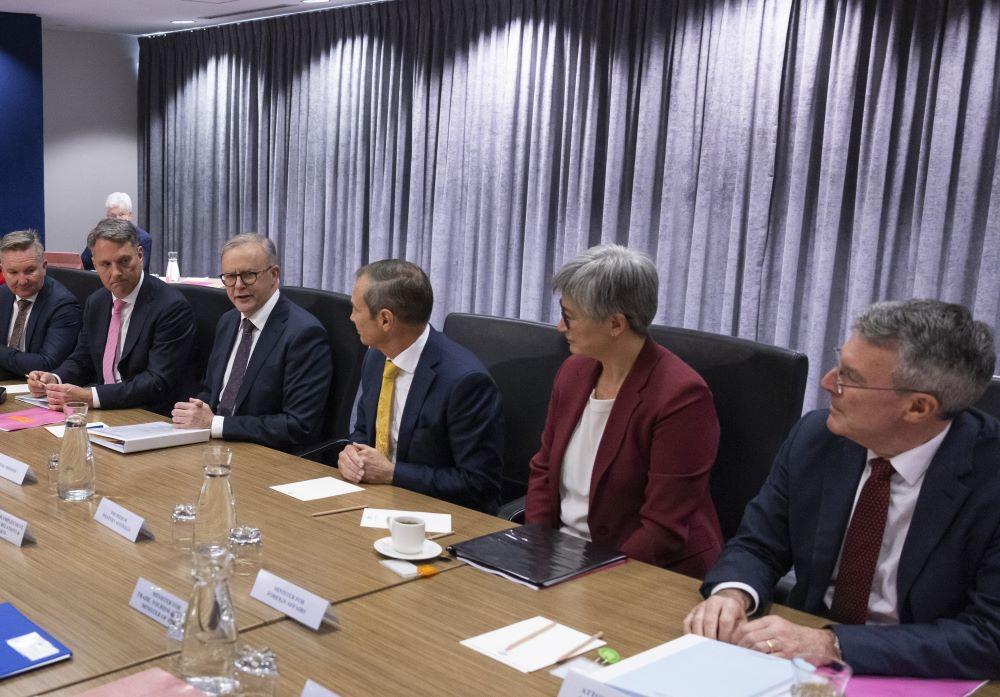Yes, Australia does need a national security adviser
Posted By Paul Symon on December 20, 2023 @ 14:30

After 40 years in national security in Australia, I find myself agreeing with Danielle Cave’s view [1] that the national security architecture is not quite right and merits fixing. I also agree that there’s a need for a national security adviser (NSA)—ideally, a statutory appointment with clear responsibilities and accountabilities—to harness the full suite of capabilities across government, to initiate desktop wargames at the strategic level, to harmonise information strategies and to test individual department and agency plans. The existence of such an office would clarify the primacy of coordination and help orchestrate a close and continuing affinity to the national interest.
What would be the distinguishing features of a small, experienced NSA staff? For starters, the NSA needs to guard against some of the more perverse features of modern government—specifically, the tendency towards cognitive dissonance and groupthink. The former tacitly urges consistency of policy at all costs, when consistency isn’t in the nature of the world in which we live. The latter describes psychological pressure towards conformity. History is littered with instances of conformity in national security that places incredible, almost existential, pressure on the nation-state.
A uniquely Australian approach could look like this. The secretary of the Department of the Prime Minister and Cabinet would play a less prominent role in dealing with national security matters. He or she would, of course, be the nation’s principal public servant dealing with all residual issues. The NSA (a statutory five-year appointment) would be the principal public servant dealing with national security matters. The NSA staff would operate within the framework of the cabinet secretariat and as an adjunct office within PM&C.
The NSA would be a civilian and, ideally, a former senior official of the defence or intelligence establishment, a senior official of the Department of Foreign Affairs and Trade, a senior academic with extensive experience in strategic studies, or an outstanding and widely respected public figure with extensive experience in government.
The Secretaries Committee on National Security contains sensible people. But I would contend that we need a senior official well versed in intelligence, military and security matters able to refine and distil a whole-of-government effort and, on occasion, play a red-teaming role to test assumptions for the prime minister and government.
The NSA’s core staff would comprise a deputy NSA and senior principals with proven expertise in intelligence, military affairs, diplomacy, Southeast Asian affairs, South Asian affairs, Pacific affairs, US affairs and Chinese affairs, along with an economist, a scientist, a technologist, a media expert and an anthropologist. Each would have a small staff, so the office of the NSA would number 40 to 50.
The roles and responsibilities of the NSA staff would include:
- being principal adviser to the prime minister and government on matters of national security
- being lead author of a national security strategy
- presenting options on any given national security issue to the National Security Committee of cabinet and the cabinet
- undertaking and overseeing short-range and long-range policy reviews
- managing the interagency process
- chairing the Secretaries Committee on National Security
- participating in all relevant meetings of the cabinet and the National Security Committee of cabinet.
It’s in the higher strategic, political and policy levels that refinement and further assistance are most needed. Specific focus is necessary at the strategic level to synchronise political language, nuance, experience and perspective with those tasked to conduct activities, and to those who must apply appropriate tactics to complex situations.
Officials are needed at the national security level with the experience and expertise to wargame, red team, manage interagency processes and oversee short-range and long-range policy reviews. Their utility, currently, is inhibited by the status quo strategic-level architecture and mindset.
These are, of course, personal views—but they are informed by experience. The Australian Defence Force has the tactical nous to build and sustain security. Arrangements that link the tactical and strategic levels are largely sound, although, I contend, they are more complicated than they need to be for a country our size.
A renewed emphasis needs to be placed on grand strategy and strategic thinking. In essence, Australia needs to be better at concentrating on, and articulating, the big picture.
We must overcome our tendency to be transfixed by detail and function as armchair generals when our place at the strategic level is about understanding the popular will and helping government lead and shape that will.
My lived experience is broadly this: when a security situation looks bleak and the politics of taking action is generally uncontested (that is, bipartisan support is largely in play), and when the national policy settings are reasonably well developed (which implies that they are nuanced to the peculiarities of the environment), then as long as the strategic level provides clarity through directives and orders, the ADF and other agencies of government will deliver.
Australia’s tactical level—the coalface—is very good. It delivers time after time. It is well led and well taught. It knows how to adjust to fluid circumstances. It will exhibit a calibrated level of empathy to citizens caught up in a difficult security environment. Our navy, army and air force will be firm, brave and resolute to any signs of duplicity or cowardice. Should the tentacles of a procrustean beast over-reach, they will be clipped with professionalism, competence and decisiveness.
The combination of a robust national security architecture (encompassing politics, national policy and the military-strategic level) in concert with a high-quality defence and government workforce gives one confidence that we can build or restore security, pretty much under any circumstances and conditions, whatever the future holds.
Article printed from The Strategist: https://aspistrategist.ru
URL to article: /yes-australia-does-need-a-national-security-adviser/
URLs in this post:
[1] Danielle Cave’s view: /australia-needs-a-dedicated-autonomous-national-security-adviser/
Click here to print.